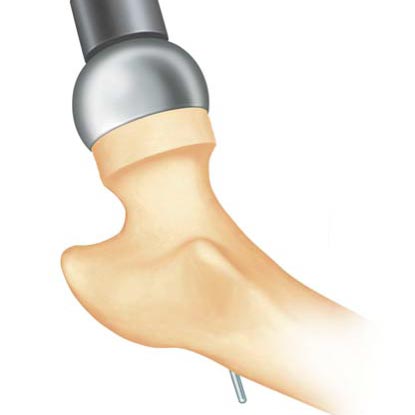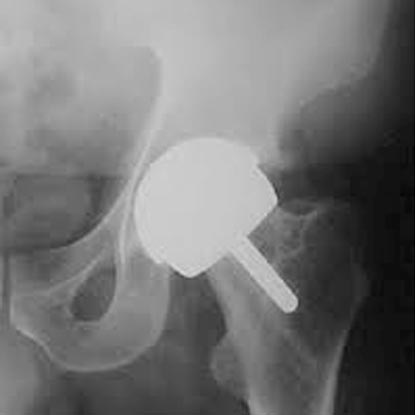What is Hip Resurfacing?
Hip Resurfacing surgery is a form of Total Hip Replacement. It varies from a standard total hip surgery by maintaining the femoral head bone stock instead of removing it completely. Hip Resurfacing is primarily an implant for young active patients who participate in high level activity with impact or have labour intensive workloads.
Hip Resurfacing surgery is done through the same posterior approach as a total hip replacement. The surgical technique varies slightly for its insertion and the use of CT guided computer assist surgery is used to accurately achieve component position which is more critical with this type of implant. The main difference is the femoral head cartilage is removed and the head is shaved to allow a metal cap component to be placed. The socket or acetabulum is prepared in the same way as a total hip replacement and a metal cup is inserted. This is a metal on metal articulation component.
This type of surgery is a niche surgery and is not for every patient. The indication for hip resurfacing is pain and stiffness significantly affecting the patients quality of life having failed non-operative measures. The suitability of this implant for your needs should be discussed with your surgeon. There are many criteria that have to be met for its use, and Dr Wood uses computer assist surgery to aid implantation of this device.
In the right patient, performed by a surgeon experienced in such devices, these can be hard wearing long lasting implants. Dr. Wood. has experience in such surgery since 2004.
Dr. Wood exclusively practices the Birmingham Hip Resurfacing technique when performing this procedure.
Success Rate & Risks
The benefit of a successful hip resurfacing procedure is pain relief and mobility. Uncomplicated procedures would expect a hip replacement to last at least 10 years and much longer if cared for. There is a 95% success rate in restoring mobility and function without complication.
Five percent of pPatients can develop complications, however, and despite everyone’s best efforts things can go wrong. Complications are minimized by preventing them and recognising certain at-risk patients.



